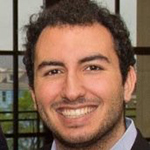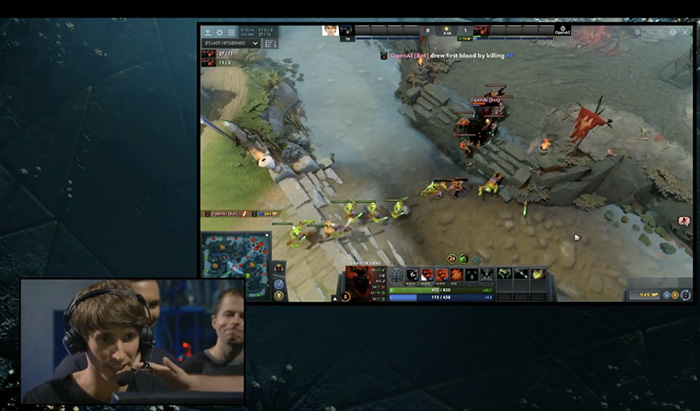
Incoming Graduate Student Co-Authors Guide to ‘Machine Learning for Humans’
Published Date
By:
- Doug Ramsey
Share This:
Article Content

Incoming Computer Science M.S. student Samer Sabri
Samer Sabri is an incoming first-year M.S. student in Computer Science at the University of California San Diego. He is returning to school this fall for the first time since completing his undergraduate degree in computer science at Yale University in 2013.
“I picked the department of Computer Science and Engineering [CSE] at UC San Diego because I’m very interested in the intersection between machine learning, cognitive science and philosophy,” explained Sabri. “UC San Diego has amazing people working in that space and I’m interested in being part of that quest.”
Sabri’s interest in machine learning should come as no surprise. He is part of a two-person writing team that developed "Machine Learning for Humans," an easy-to-read online primer on what machine learning is all about. Together with entrepreneur Vishal Maini, Sabri wrote the five-part "roadmap" that went live on the website Medium on August 19. The full series is available for download (and will soon be published as an e-book).
After introducing "Why Machine Learning Matters" and the field’s history, the next three chapters delve into supervised learning from the simplest linear regression to more advanced tools such as decision trees and random forests, and introducing cross-validation, hyper-parameter tuning and ensemble models. In part three, the authors switch to unsupervised learning, including clustering, principal components analysis (PCA) and singular value decomposition (SVD). Subsequent chapters delve into neural networks and deep learning, and reinforcement learning, including Markov decision processes, Q-learning and the value learning problem.
Sabri and Maini wrote the entire series as a "primer on machine learning" for non-technical people who are willing to engage with technical concepts, as well as for "technical people who want to get up to speed on machine learning quickly." According to Sabri, the series is also for "anyone who is curious about how machines think."
"This guide is intended to be accessible to anyone," adds the CSE grad student. "Basic concepts in probability, statistics, programming, linear algebra, and calculus will be discussed, but it isn’t necessary to have prior knowledge of them to gain value from this series."
In short, "Machine Learning for Humans" is written as a quick digest of high-level machine learning concepts that can bring someone up-to-speed on the subject in two or three hours, and the authors use simple, plain English for explanations, often accompanied by math, code and real-world examples. The series is also fresh with examples, some as recent as August 2017 (e.g., the OpenAI announcement that the open-source AI had defeated top professionals in one-on-one matches playing the online, multiplayer game Dota 2).

Human player (lower left) is defeated by open-source OpenAI artificial intelligence in playing online, multiplayer game called Dota 2.
Prior to enrolling in graduate school at UC San Diego, Sabri worked for the management consulting firm McKinsey Co., advising Fortune 100 companies from its Silicon Valley office. In 2016 Sabri also founded TableScribe, a company to market an Excel-based business intelligence tool for small-and medium-sized businesses. (The TableScribe software is currently in free beta release.) Sabri earlier co-founded, Conigo Labs, based in his native Lebanon, to offer customized code to automate processes such as workflow tracking and scheduling, cleaning data, and consolidating data from various sources -- primarily for clients in the insurance, consumer packaged goods and manufacturing sectors. (TableScribe effectively puts the ability to customize data-to-report processes into the hands of non-programmers, potentially cannibalizing demand that Conigo Labs was originally set up to fulfill.)
For now though, Sabri says he is putting his companies on the back-burner. “I am going to focus on my studies and my research,” he said. “If all goes well, I’ll slowly dial up the ventures again and hopefully make some money in the process.”
Share This:
You May Also Like
Stay in the Know
Keep up with all the latest from UC San Diego. Subscribe to the newsletter today.


